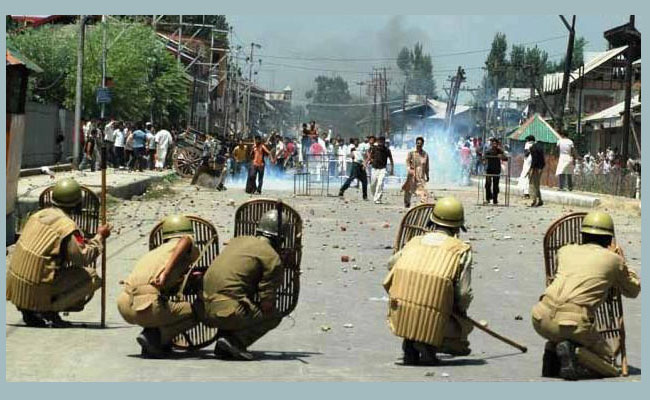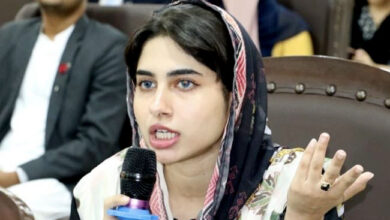Leadership in Practice – Understanding Political Psychology of Nationalists in Jammu and Kashmir

Written by: Sardar Aftab A. Khan
A political psychology behaviour change project – funnelling nationalists into a dark dungeon of historical myths and conflicting narratives is currently underway predominantly in Azad Jammu and Kashmir and Gilgit Baltistan.
The core focus of this strategically initiated and social media-amplified behaviour change project is to influence and shoehorn minds, double down confusion and create political animosity and hatred within socially and politically active individuals and organisations. Furthermore, discredit civil resistance movements across all regions of the State of Jammu and Kashmir.
An increasing number of genuine political activists and the finest minds within the nationalist cadre are falling into the trap and trying to become detective conspiracy theorists, historians and so-called experts in political geography without any academic or certified professional training on the subject matter. Therefore, one can see the activism, debate and discussions among nationalists in particular and political circles, in general, are increasingly funnelled into a dark dungeon of historical myths and conflicting interpretations/narratives on many dark chapters of our history within AJK, Gilgit Baltistan, Jammu Kashmir and Ladakh. Most of the discussions and heated debates within nationalist circles revolve around events that happened in 1846 or between 1947-1949. What is the significance and importance of these debates in 2022 and beyond?
As a policy analyst and public information campaigns strategist, I read emerging issues, debates, discussions, various posts, and comments on J&K-focused social media forums, individual walls, Web TV Channels, and newspaper articles. One can see that most of the activists from various nationalist political parties, factions and groups are increasingly becoming oblivious to the realities of life that affect the political economy in 2022 and continue to affect us all in the future.
Many finest brains and intellectuals are commenting on and interpreting historical events and associated myths/conflicting narratives to rub salt over historical wounds rather than creating knowledge and an understanding of reconciliation and forgiveness. Many appear to seek pleasure in spitting venom, mudslinging and importing the culture of acrimonious debate and insults from India and Pakistan into political discourse across all the regions and diaspora of the State of Jammu and Kashmir.
One of the significant obstacles across the nationalist political spectrum is the ability and willingness to do a reality check. We hardly introspect and do a stock tacking on our political activism. Most nationalist political parties and groups have no specific, measurable, achievable, realistically resourced, or time-bound (SMART) action plan. Does anyone have a written three to five years strategic business or activities delivery plan? Most probably not. That is why we find it difficult to successfully identify pathways to challenge the structures of oppression, end the status quo and get out of the cul-de-sac. We must recognise and understand that we are all in the same boat: under enforced military occupation, with limited freedom of speech and movement across the State of Jammu and Kashmir.
Our lack of focus, participation and influence in the political economy seriously affects our present and future. We need to focus on diversifying situational awareness. It is vital to refocus energies and efforts on restoring the dignity, influence and sovereignty of the people in our State’s internal and foreign affairs.
There is an urgent need to constructively engage on the issues related to the ongoing political turmoil and lack of participation and influence in the existing decision-making forums internationally and within various regions of Pakistan-controlled and Indian Occupied areas of the State of Jammu and Kashmir.
It’s time to find a pragmatic approach and way forward for everyone believing in a civilised political debate and discussion concerning the wellbeing and sovereignty of the people and State of Jammu and Kashmir.
Therefore, anyone researching hidden aspects of our political geography and historical events in the 19th and 20th centuries must do so with academic rigour and internationally accepted standards of research within history. Their research will have legitimacy and more acceptance if they can get their study published in any one of the peer-reviewed history journals. Once published in a peer-reviewed history journal, they can share their research findings with everyone. This way, it can be used as a core reference and basis to learn from both positive and negative aspects of our social and political history.
Furthermore, their research would create new knowledge to inform our current and future direction of travel. It would help us learn from our past and not repeat anything that can impact our future. It will strengthen the people’s resistance movement for an open, peaceful, cohesive and prosperous society within all the regions of the State of Jammu and Kashmir. Let us make it happen. May God help and guide us all towards the path of dignity and wisdom so that we can learn and practice how to agree to disagree with mutual respect and honour.
About the author: Sardar Aftab Khan is a senior leader apprentice, studying M.Sc Leadership in Practice at Lancaster Business School for the award of a Chartered Leader status from the Institute of Leadership and Management. He can be reached via E-mail: aftab787@yahoo.com
Dated: 11 November 2022
https://sardaraftabkhan.blogspot.com/2022/11/in-practice-understandingpolitical.html





